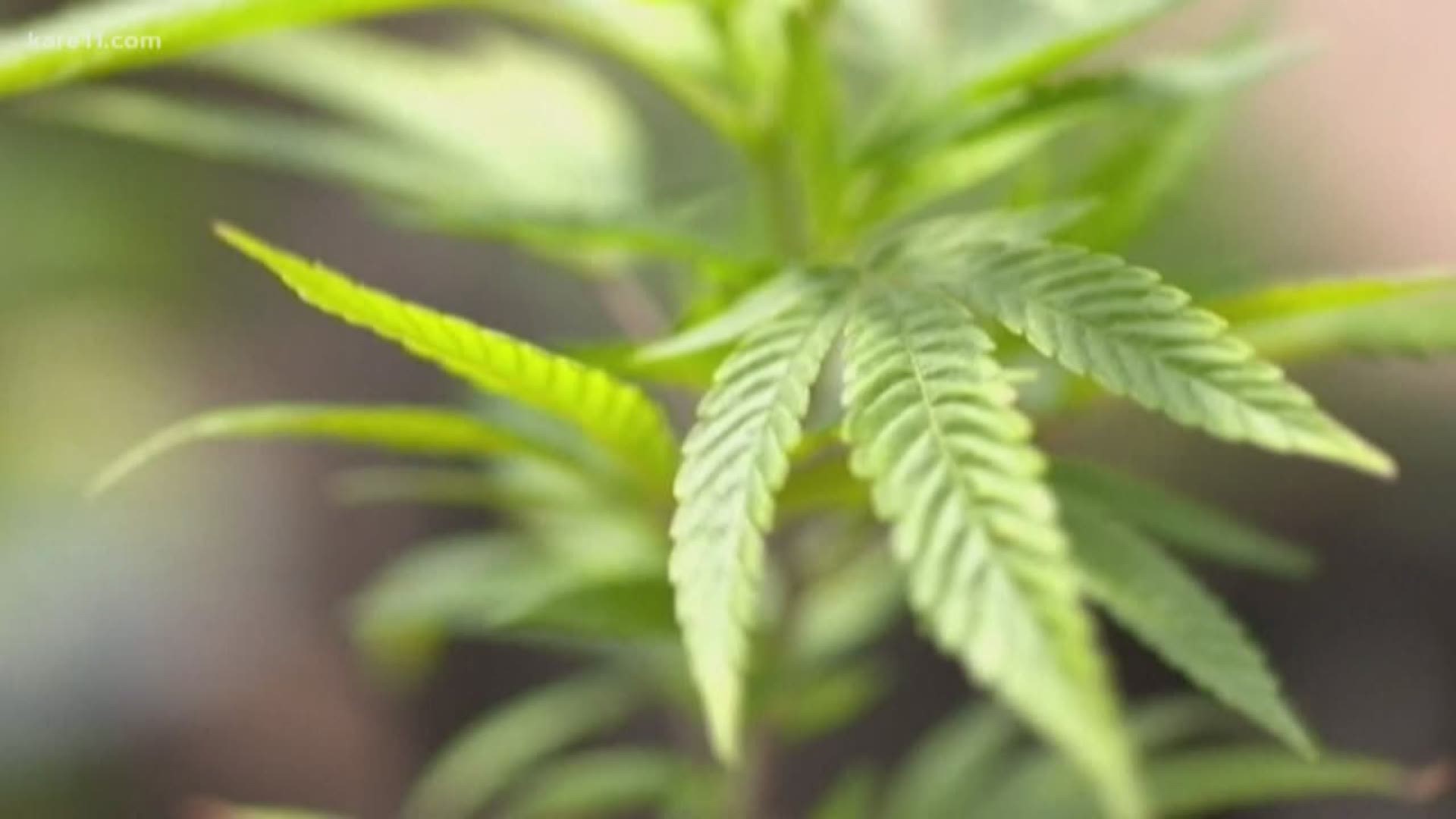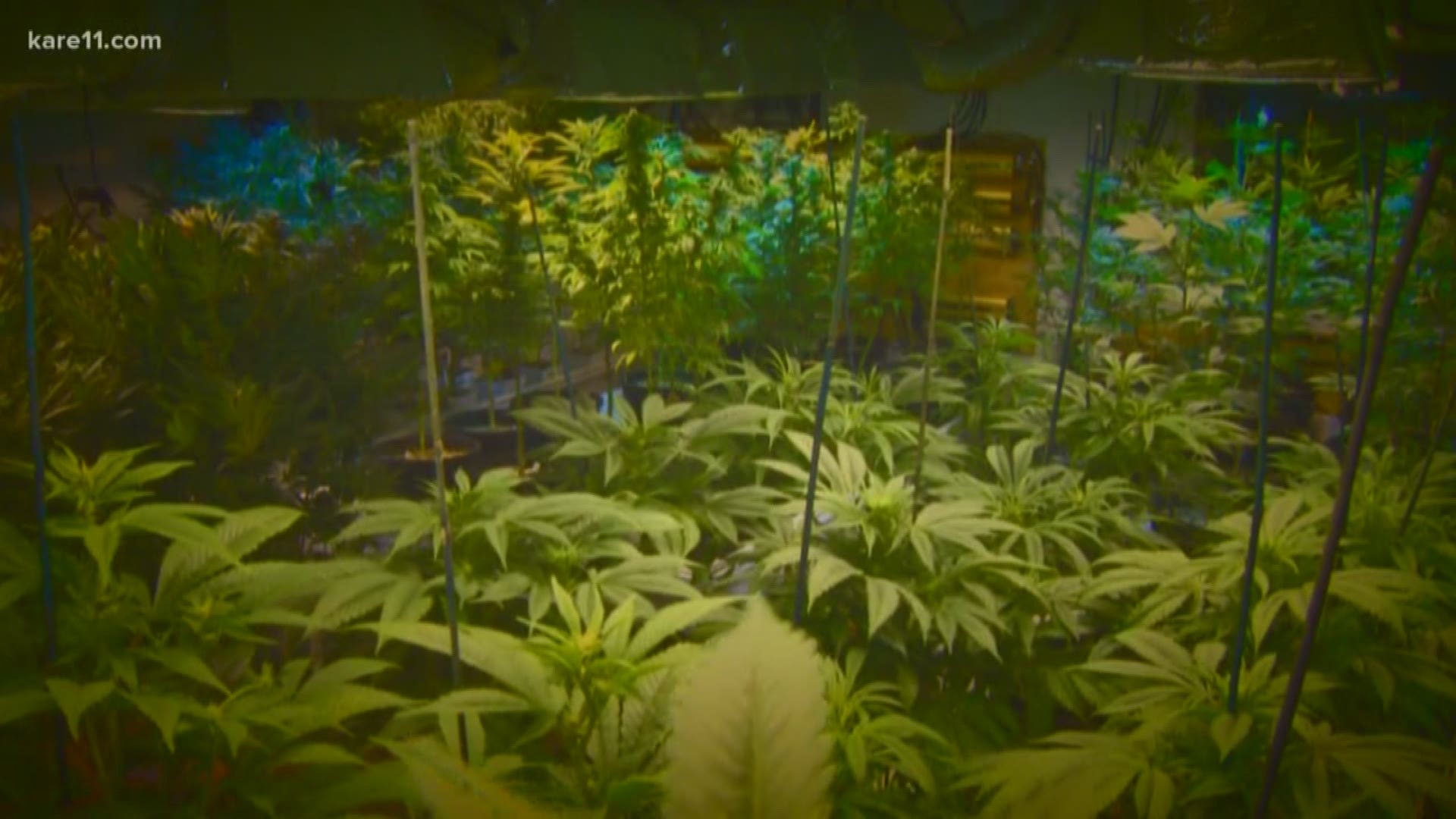MINNEAPOLIS — It was a gathering based on a hypothetical, the notion that Minnesota will eventually legalize recreational pot. And there was plenty of interest.
A symposium dubbed CannCon brought policymakers, business executives, lawyers and experts together at the Milwaukee Road Depot Wednesday to talk about how the state's future cannabis industry might look.
The Denver-based Marijuana Policy Group projected that Minnesota's cannabis industry would do $426 million in sales in the first year of legalized pot, and that would hit $1.2 billion by the fifth year. The organization predicted tax revenues of $112 million in year one, growing to $300 million by year five.
The group also projected an annual economic impact of $2.6 billion, with 20,000 jobs generated directly and indirectly. A lot of that would depend on the prices and availability being competitive with the current black market for recreational marijuana.
Minnesota has roughly the same population as Colorado, which legalized cannabis in 2014. But the Marijuana Policy Group said the Rocky Mountain State had more pent-up demand for legal pot than Minnesota because there were more consumers of illegal cannabis there already.
But companies in the cannabis business would face hurdles, including just engaging in normal banking.
"Even when they pass that under state law, it’s still illegal under federal law," Joe Witt of the Minnesota Bankers Association told KARE.
That's because the drug is still listed a Class 1 controlled substance under federal narcotics law.
"It puts us in a really tough spot. You can’t make loans to them. You also can’t open deposit accounts for them. The cash is proceeds of something that is illegal under federal law."
He said that situation would change if the US Senate passed the Secure and Fair Enforcement Banking Act, aka SAFE Act, which has already passed the US House with strong support. The other option would be for the federal government to reclassify marijuana as a lower-level controlled substance.
House Majority Leader Ryan Winkler said House Democrats will be ready to move a recreational cannabis bill during the 2020 Session. He said one goal is to prevent large national companies from rushing into the market and crowding out Minnesota companies.
"One of the strongest, most consistent things we’ve heard is that people want it to be more of craft industry, more of a small business industry, an industry that creates opportunities for the communities most adversely affected by our current war on drugs," Rep. Winkler, a Golden Valley Democrat, told KARE.
"And to make sure Minnesota isn’t creating a cannabis law that just opens the door for national corporate players to come in and consume all the profits."
Business attorney Steven Katkov said there's a rush-to-market effect in new states where marijuana becomes legal, and national players would try to capitalize on Minnesota's new cannabis economy. And they would arrive with money to burn.
"Minnesota is going to be late in the game. So, you’ll have well-established players, well-financed and very experienced, who are going to come in and take advantage of it," Katkov told KARE.
"The multi-state operators, or MSOs, are experienced in negotiating the myriad levels of government approvals that this business requires."
But Katkov predicted Minnesota won't be ripe for investment in recreational cannabis until the state's medical marijuana program is fixed.
"I don’t think you’ll see capital flow to this state until the state can prove they can get a medical marijuana program to work," Katkov explained.
He noted Minnesota has only two licensed dispensaries for medical cannabis, compared to 60 in Ohio. The state's enrollment in medical marijuana is just 25,000, well short of expectations.
"I think if you increase the number of dispensaries, increase the ailments that qualify, and we’ll see doctors writing more prescriptions. And I think that will be the evolution toward considering legalization of cannabis."
Katkov said supporters of legalized marijuana are facing an uphill battle in Minnesota, given the state's deeply-held religious beliefs and marijuana's status as a schedule-one drug.
MORE POLITICS: Minnesota state senator says he's victim of 'revenge porn'
MORE POLITICS: Trump only choice on GOP primary ballot


